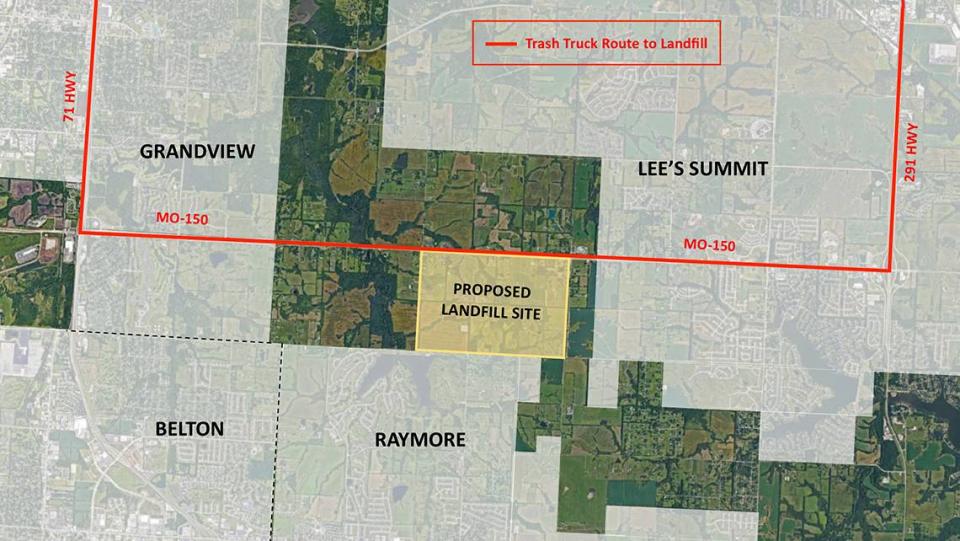Missouri landfill law is badly out of date. Don’t turn south Kansas City into a dump | Opinion
Kansas City Mayor Quinton Lucas plans to ask voters this summer to approve a plan to impose a fee of $5 per ton on the operators of any landfill or trash transfer station inside city limits. Voters should do just that. While necessary, these waste facilities impose significant costs on the communities where they operate, and defraying those costs with a host fee is something that other cities around the country have begun to do.
It is critical that local communities have the opportunity to carefully assess every aspect of a new local landfill — including whether it is necessary — while also thoroughly vetting operators and their locations for practicality and suitability.
In the past, Lucas and the City Council have seemed to understand the gravity of choosing landfill sites. Rather than chase the flashy promise of an inexperienced developer last year, city officials postponed a decision to allow experts in the region to study whether building a landfill in south Kansas City is necessary. After the study was completed, the answer is clear: There is no urgent need for a landfill there or nearby. The proposed landfill would only create an undue burden on taxpayers and Kansas City-area families. There was, as the mayor anticipated, no reason to rush blindly ahead.
But the developer is back again this year, undaunted by the study. So, we are asking state legislators to consider updating a 30-year-old law to give adjacent municipalities a say in whether to put a landfill within a mile of our homes, schools, drinking wells, parks and businesses.
The current law is insufficient to protect local control, as it excludes input from several directly affected communities. It says only municipalities located within a half-mile of a landfill get a voice in the matter. The location of the 200-acre solid waste landfill proposed for south Kansas City — which would be one of the largest landfills in the state — is right at the half-mile mark. Now, maybe 30 years ago, this amount of buffer was sufficient when most of this area was agriculture, but that is no longer the case. Instead of farmland, there are now homes, businesses, parks, playgrounds and thousands of residents.
The 3-mile-wide section of south Kansas City touching the proposed new landfill is a peninsula surrounded by creeks, lakes and four different municipalities. The only direct access to this area is via Missouri Route 150. Hundreds of trash trucks would drive through these municipalities daily. Debris and litter would increase and our roadways would need constant repair. Local residents would compete in traffic with trash trucks. Children attending the nine schools in this area, including Summit Pointe Elementary School directly across the street, would be sharing the road with dump trucks full of trash.
What if there’s a landfill fire or serious injury? Given that landfill fires are all too common, this is an inevitable reality. Recently, a fire broke out adjacent to the proposed landfill site in south Kansas City. Raymore, South Metropolitan and Grandview were the first fire departments on the scene because of their close proximity. The Kansas City Fire Department, whose nearest fire station is 10 miles away, was last to arrive. Kansas City does not have adequate fire or EMS services in the immediate area. This responsibility to fight would fall on the neighboring municipalities, which should take care of their own residents. As it stands, they have no voice in the matter.
That’s just not right.
The Missouri General Assembly could fix that problem by passing House Bill 1751 and Senate Bill 739. Both pieces of legislation would extend the buffer from a half-mile to a full mile and give a voice to those most impacted. We are simply asking that an old law be updated to match the changing times, giving residents of neighborhoods that would be heavily impacted by a large new landfill a seat at the table. Thankfully, H.B. 1751 passed on Thursday. Now we will see what the state Senate will do.
As Mayor Lucas has recognized the social and economic costs of trash, we ask lawmakers in Jefferson City to do the same.
Jennifer Phanton is a day trader, rescue mom and nature lover who lives in Grandview. She is founder of the Kill the Fill political action committee.



